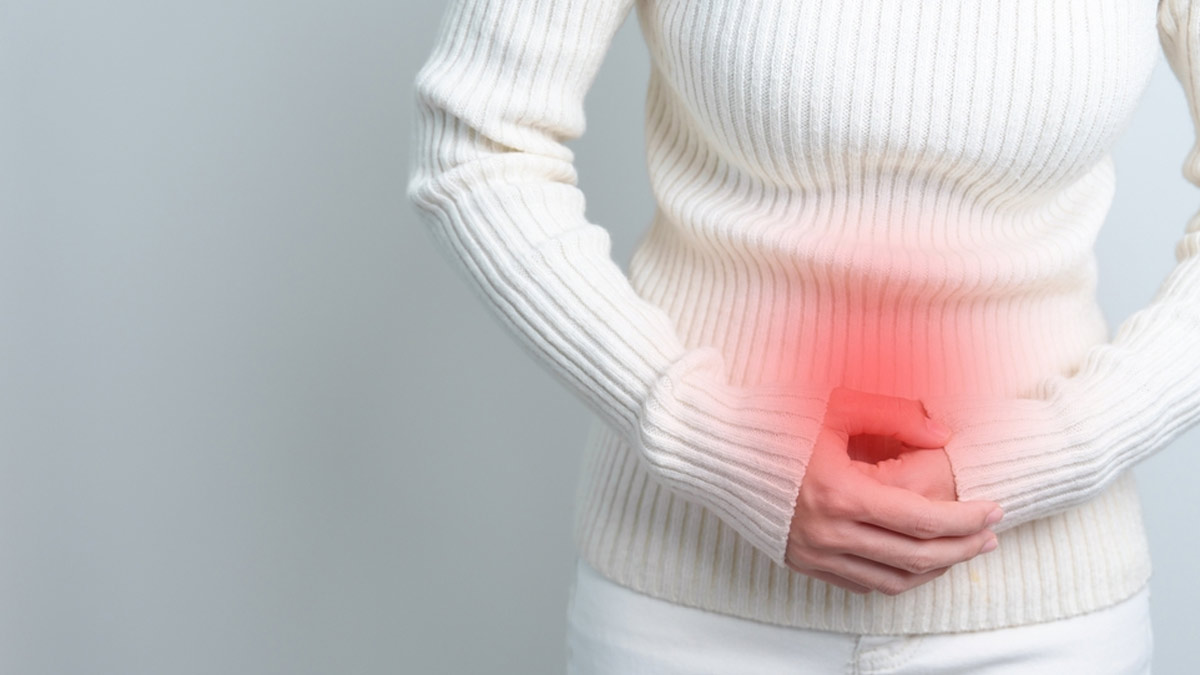
Are you experiencing deep pelvic pain during intercourse or discomfort during bowel movements? These might be signs of a condition known as bowel endometriosis. This complex disorder occurs when endometrial tissue, similar to the lining of the uterus, grows on the bowel, including the rectum and sigmoid colon, leading to a range of distressing symptoms. We spoke to our expert Dr Madhu Bindu Pidikiti, Consultant - Gynaecology and Obstetrics, Manipal Hospital, Vijayawada, who explained this condition and listed its treatment and preventive measures.
Table of Content:-
What Is Bowel Endometriosis?

“Bowel Endometriosis is a disorder that occurs when tissue similar to the lining of the uterus (endometrium) grows on the bowel, causing inflammation and scarring. It often affects the rectum and the sigmoid colon. This type of endometriosis is known as extra-pelvic colon endometriosis because it occurs outside the pelvis,” said Dr Pidikiti.
Bowel endometriosis is often associated with other conditions, such as pelvic endometriosis, adenomyosis, fibroids, and Irritable Bowel Syndrome (IBS). According to 2021 research, bowel endometriosis most frequently affects the rectum and the sigmoid colon, the 'S-shaped' section of the large intestine.
Symptoms Of Bowel Endometriosis
The consequences of endometriosis in the bowel vary from one person to another and often resemble those of other digestive problems. Dr Pidikiti listed its symptoms as follows:

- Abdominal pain or cramping
- Bloating with gas
- Diarrhoea or constipation
- Rectal bleeding or pain during bowel movements
- Abdominal tenderness or mass
Also Read: Endometriosis And Adenomyosis: Expert Explains The Difference Between The Two
Causes Of Bowel Endometriosis
Here are some causes of endometriosis shared by the expert:
- Retrograde Menstruation
- Colonic metaplasia
- Surgical scar implantation
- Lymphatic or vascular dissemination
- Genetic and Hormonal factors
- Environmental Factors: Exposure to endocrine-disrupting chemicals (EDCS) and environmental toxins may play a role
Diagnosis For Bowel Endometriosis
Diagnosing bowel endometriosis usually involves an overall physical examination, which includes manually checking for growths in the vagina or rectum. Here are some tests that can help in the diagnosis:
- Laparoscopy
- Imaging: MRI/CT Scan
- Bowel Scope (Colonoscopy)
Treatment For Bowel Endometriosis
Treatment of bowel endometriosis depends on the severity of symptoms, disease extent, patient’s overall health, and fertility desire. Here are some treatment measures as listed by Dr Pidikit:
Medication

- Pain Relievers: Non-Steroidal Anti-Inflammatory Drugs (NSAIDs) are the best over-the-counter analgesics that can easily alleviate certain distress.
- Hormonal Therapies: This kind of treatment can reduce and even stop menses by using OC pills, GnRH agonists, and other hormones, which makes it possible to control endometrial development and symptoms.
Surgical Treatment
- Laparoscopy: Robotic or minimally invasive surgery can diagnose and remove endometrial tissue. It's often used for women with severe symptoms who do not respond to medication.
- Bowel Resection: In severe cases, surgery may be required to remove a portion of the bowel if it is severely affected by endometriosis.
Lifestyle and Home Remedies
- Diet and Nutrition: Some women find relief by avoiding certain foods that trigger symptoms, such as gluten, and dairy.
- Regular Exercise: Helps reduce pain and improve overall well-being.
- Stress Management: Techniques, such as yoga, meditation, and acupuncture can assist in managing stress and alleviating symptoms.
Preventive Tips For Bowel Endometriosis
While there is no guaranteed way to prevent endometriosis, certain measures may help reduce the risk or delay the onset:
- Hormonal Contraceptives: Long-term use of birth control pills or other hormonal contraceptives may lower the risk.
- Regular Exercise: Maintaining a healthy lifestyle with regular exercise can help regulate menstrual cycles and reduce body fat, which lowers oestrogen levels.
- Dietary Changes: Eating a diet rich in fruits, vegetables, and omega-3 fatty acids while avoiding high-fat and processed foods can be beneficial.
- Early Diagnosis and Management: Early diagnosis and treatment can help control symptoms and prevent disease progression.
Bottomline
Dr Pidikiti concluded, “Bowel endometriosis is a complex and often debilitating condition that affects many women worldwide. Understanding the symptoms, causes, and treatment options is crucial for managing the disease and improving quality of life. While research is ongoing, and new treatments are continually being developed, a combination of medical intervention, lifestyle changes, and supportive care remains the cornerstone of managing bowel endometriosis.”
[Disclaimer: This article contains information provided by an expert and is for informational purposes only. Hence, we advise you to consult your own professional if you are dealing with any health issues to avoid complications.]
Also watch this video
How we keep this article up to date:
We work with experts and keep a close eye on the latest in health and wellness. Whenever there is a new research or helpful information, we update our articles with accurate and useful advice.
Current Version